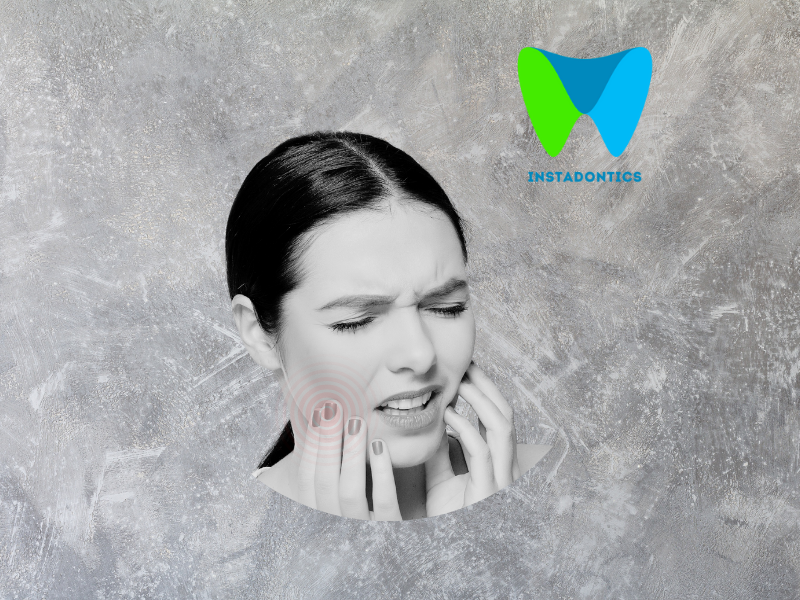Can Bruxism Lead to TMJ Disorder? | Bruxism is the involuntary grinding or clenching of teeth, which can occur during the day (awake bruxism) or at night (sleep bruxism). While occasional teeth grinding may not cause significant issues, chronic bruxism can lead to various dental and health problems, including TMJ disorders.
What is TMJ Disorder?
TMJ disorders refer to a group of conditions affecting the temporomandibular joint, which connects the jawbone to the skull. This joint allows for the movement of the jaw, enabling actions such as talking, chewing, and yawning. TMJ disorders can result in pain, discomfort, and dysfunction in the jaw, facial muscles, and surrounding areas.
How Bruxism Contributes to TMJ Disorders
So Can Bruxism Lead to TMJ Disorder? Bruxism can indeed lead to temporomandibular joint (TMJ) disorders. Understanding the connection between these two conditions is essential for anyone experiencing jaw pain, discomfort, or related symptoms. Here’s a closer look at how bruxism can contribute to TMJ disorders, the symptoms to watch for, and potential treatment options.
- Increased Pressure on the Jaw: Chronic teeth grinding exerts excessive pressure on the jaw muscles and the temporomandibular joint. This constant strain can lead to inflammation and irritation of the joint, contributing to TMJ disorders.
- Muscle Fatigue: The muscles responsible for jaw movement can become fatigued and tense due to the repetitive clenching and grinding associated with bruxism. This tension can lead to discomfort and pain in the jaw and surrounding areas.
- Altered Bite Alignment: Bruxism can cause changes in the alignment of the teeth and jaw over time. Misalignment can affect how the jaw fits together, leading to additional strain on the TMJ and potentially resulting in a TMJ disorder.
- Joint Damage: Chronic grinding can lead to wear and tear on the cartilage that cushions the TMJ. This damage can result in joint dysfunction, pain, and limited jaw movement.
- Stress and Anxiety: Stress is a common trigger for both bruxism and TMJ disorders. The muscle tension and jaw clenching associated with stress can exacerbate both conditions, creating a cycle of discomfort.
Symptoms of TMJ Disorders
If bruxism has led to TMJ disorders, individuals may experience a variety of symptoms, including:
- Jaw Pain: Pain in the jaw joint or surrounding muscles, often worsening with movement or during times of stress.
- Clicking or Popping Sounds: Audible sounds when opening or closing the mouth, which may indicate joint dysfunction.
- Limited Jaw Movement: Difficulty or discomfort when opening the mouth wide or chewing.
- Facial Pain: Discomfort in the face, particularly around the jaw, temples, or ears.
- Headaches: Frequent headaches, especially tension-type headaches or migraines, can be associated with TMJ disorders.
- Ear Pain: Discomfort or a feeling of fullness in the ears, which may not be related to an ear infection.
Managing Bruxism and TMJ Disorders
If you suspect that bruxism is contributing to TMJ disorders, it’s essential to take proactive steps to manage both conditions. Here are some strategies:
- Consult a Dentist: A dental professional can assess your symptoms, examine your teeth and jaw, and recommend appropriate treatments. They may suggest a custom-fitted night guard to protect your teeth and alleviate pressure on the TMJ.
- Stress Management: Since stress can exacerbate both bruxism and TMJ disorders, incorporating relaxation techniques into your routine can be beneficial. Consider practices such as mindfulness, meditation, deep breathing exercises, or yoga.
- Physical Therapy: A physical therapist can provide exercises to strengthen the jaw muscles, improve flexibility, and reduce tension. They may also use techniques such as ultrasound or massage to alleviate discomfort.
- Heat and Cold Therapy: Applying heat or cold packs to the jaw can help reduce inflammation and relieve pain. Heat can relax tense muscles, while cold can numb pain and reduce swelling.
- Medication: Over-the-counter pain relievers, such as ibuprofen or acetaminophen, may help alleviate pain associated with TMJ disorders. In some cases, a healthcare provider may prescribe muscle relaxants or anti-inflammatory medications.
- Avoid Hard Foods: Limiting hard, chewy, or sticky foods can help reduce strain on the jaw and minimize discomfort.
- Maintain Good Posture: Poor posture can contribute to jaw tension. Be mindful of your posture, especially when sitting at a desk or using electronic devices.
- Regular Dental Check-Ups: Routine visits to the dentist can help monitor your oral health and address any issues related to bruxism or TMJ disorders early on.
Related: Best Exercises to Relax Jaw Muscles
Bruxism can indeed lead to TMJ disorders, causing discomfort and affecting your quality of life. Recognizing the signs of both conditions and seeking appropriate treatment is essential for managing symptoms and preventing further complications. If you suspect you are grinding your teeth or experiencing TMJ-related issues, consult with a dental professional for a comprehensive evaluation and tailored treatment plan. With the right approach, you can alleviate discomfort, protect your teeth, and maintain a healthy jaw.



